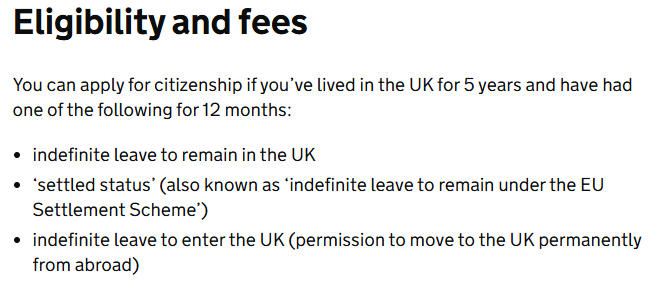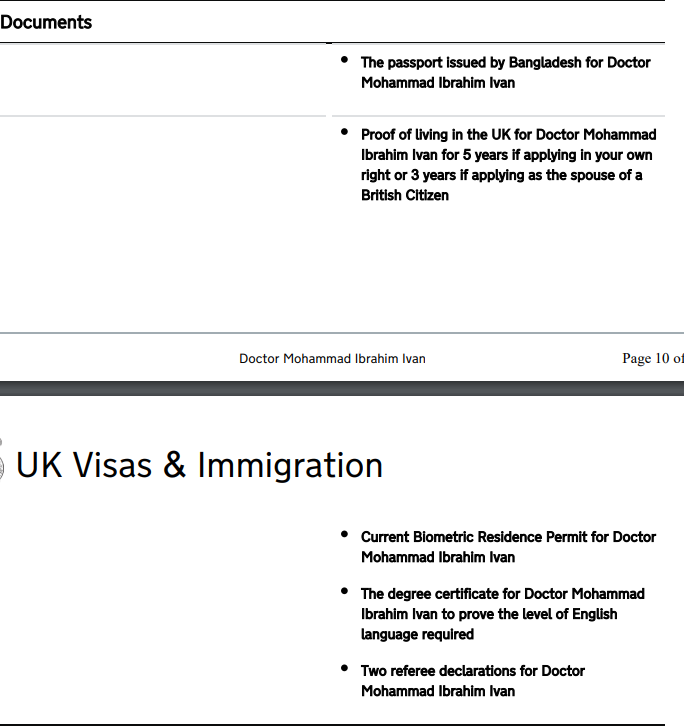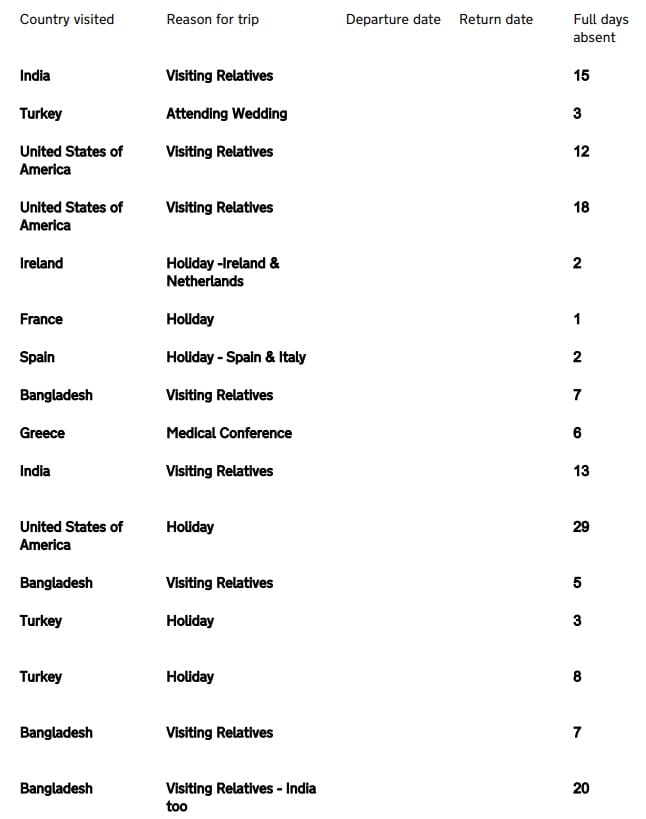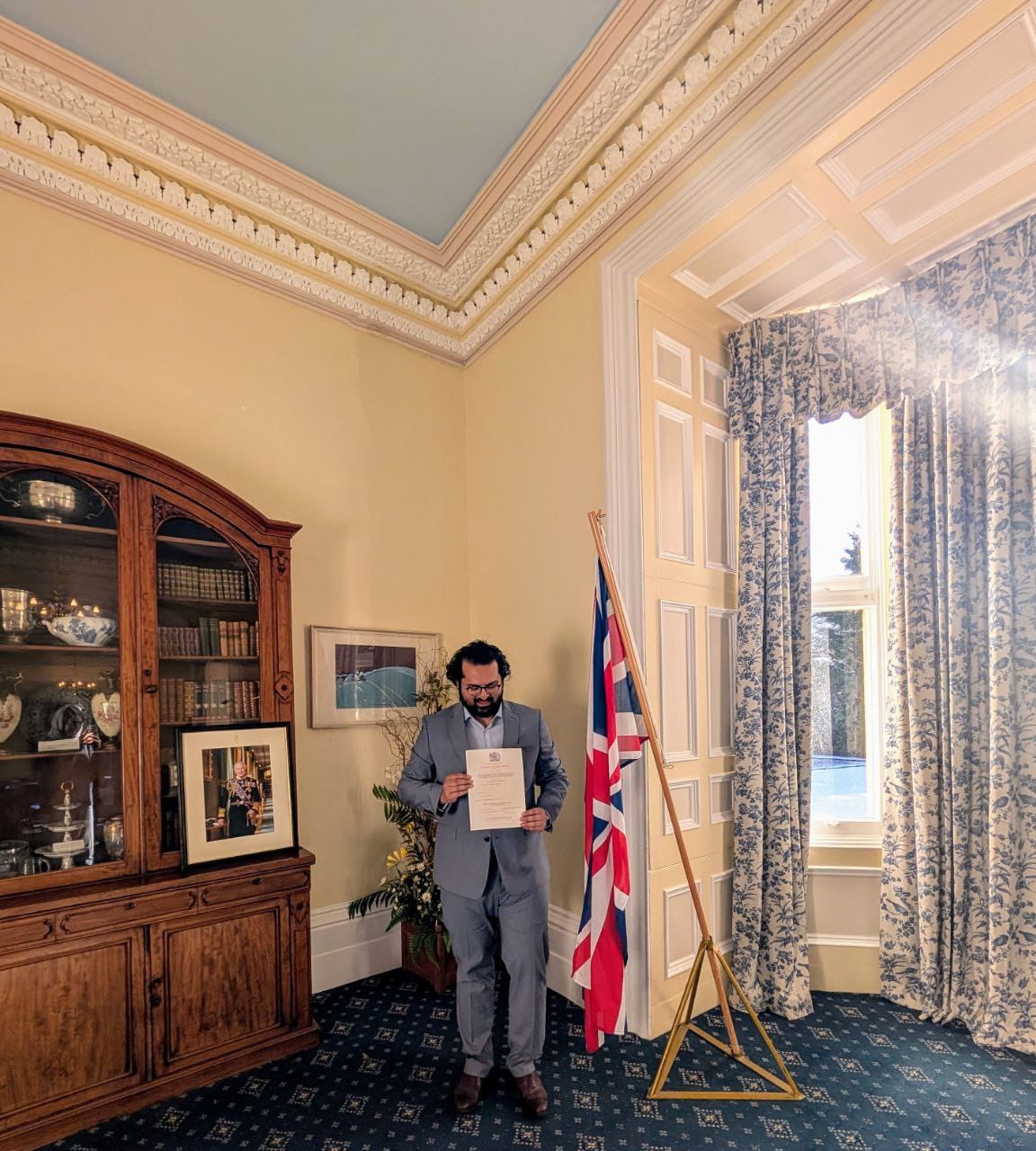Applying for UK Naturalisation as an IMG

5 years have come and gone, your ILR application was accepted, and now the moment of truth: applying for naturalisation! This is the first step towards becoming a British citizenship, and only after doing this can you apply for your British passport.
How do I apply?
Once you've hit one year post indefinite leave to remain, follow the information listed on the UK gov website to get started. You're able to complete the form and even upload your documents online.

Remember, you CANNOT have spent more than 450 days outside the UK during the 5 years before your application and spent more than 90 days outside the UK in the last 12 months. It needs to be exactly five years to the day when you apply, and you should have your Life in UK test pass reference number, two referees, and proof of your knowledge of the English language.
For your referees, one person can be of any nationality so long as they are on the professional person list, but the other MUST hold British citizenship and either be on the professional list or be over the age of 25. They must have known you for at least three years. The referees can also not be related to each other or to you.
For your proof of English, you will be asked if you have completed a degree that was taught in English. This can be your primary medical qualification (PMQ) or any other degree you may have completed in the UK. If neither case applies to you, answer 'no', and select the option for having passed an English language test. You can provide the certificate number of a previously used (even if expired) IELTS or OET.
As I had undertaken a post-graduate degree in medical education in the UK, this is what I used as my proof of English proficiency. I provided my degree certificate which was accepted without any further need for IELTS/OET.
My application checklist
The important thing to remember about your submission is that there is no need to provide anything beyond what is asked of you. Many IMGs unnecessarily complicate their application process by providing more than what is asked for them - and this can potentially delay your hearing back.

You'll need to document all the travel you did in and out of the UK for the full duration of time over the last 5 years, just as you did for your ILR application.

How do I provide proof of living?
You can provide your P60 as proof of living. There is no need to burden your application with tenancy agreements, bank statements, utility bills, etc. Ensure your P60(s) cover the duration that is asked of you in your application, and that is enough.
How much will it cost?
A single application for naturalisation will cost you £1,630. Ensure you have enough of a buffer on your credit card limit to pay for this, especially if you are also applying for your family at the same time. The fee for each child is £1,214.
You'll also need to complete your biometrics as part of your application. This includes your children, but if they are under the age of 5, they will not have to provide their fingerprints. You will be informed after submitting your application with instructions on how to complete your biometrics.
How long will it take?
The Home Office provides a cursory 6 month timeline to hear back, starting from the date they receive your application. Naturally, if your application is a little more complicated, it may take longer. You will be informed if this is the case. As difficult as it is to sit and wait with no news, please do not contact the Home Office asking for an update until 6 months have passed. You can even contact your local MP after that time.
I received my naturalisation within 3-4 months of applying. There was no word from them until I got the official letter stating I had received it, so don't worry if you don't hear anything during this time.
Citizenship Ceremony
YAAAAAY!!! The best news has come in the mail: your application for naturalisation has been accepted. Now the only thing that remains is waiting for the letter inviting you to the citizenship ceremony.
Depending on where you live, your council may undertake frequent ceremonies, or they may only happen once a month. Either way, you'll need to wait for an invitation to attend, although you also have the option to pay for a private ceremony. You cannot apply for your British passport until your ceremony has been done, so if there is a significant delay in your local ceremony, you may want to book a private ceremony. Additionally, private ceremonies are guaranteed to be, well, private (hence the name!), while the normal ceremonies may be done in a group.

Make sure you read the ceremony instructions clearly, and try to be as early as possible. The entire ceremony takes about 10-15 minutes, after which you'll be given a naturalisation certificate. Check and ensure all the information in the certificate is correct. This certificate is VERY IMPORTANT. Keep it somewhere safe and secure, as you'll need it for your British passport application.
Frequently Asked Questions
What if my spouse is not eligible yet?
If your spouse came to the UK on a dependent visa later than yourself (the primary applicant), they will have to apply later. Even on the dependent visa, they must wait until they have reached the time limit of 5 years for the ILR. They can then apply for naturalisation immediately (not having to wait another year) as you will have obtained British citizenship by that point.
My child was born before my spouse or I obtained ILR. What do they need?
You would have applied for a visa for your child to reside in the UK from their birth, as the UK does not give citizenship on birth if one of the parents are not ILR holders (born in UK) or British citizens (born outside of UK). If your baby was born in the UK, as soon as one parent receives their ILR, you can apply for the child's naturalisation. If your child was born outside the UK, both parents need to hold ILR before you can apply for the child's ILR, after which you all can proceed accordingly.
Do I need a cover letter?
No. Again, we implore you to not provide anything beyond what is asked of you.

